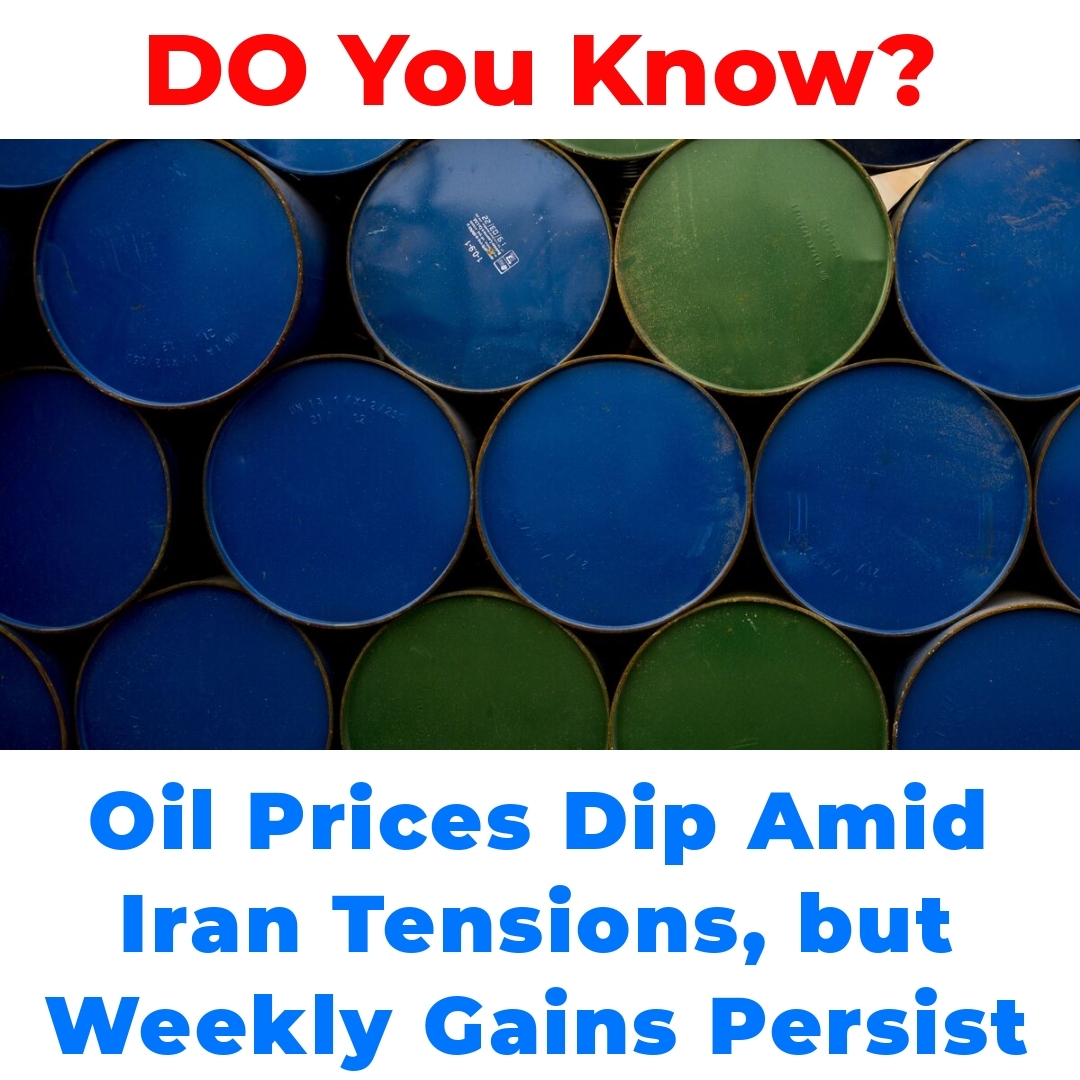The current state of oil prices, which have edged lower yet remain on track for a second consecutive weekly gain, reflects the ongoing geopolitical volatility, particularly the tensions in the Middle East. Crude oil supply remains critically important, with such geopolitical factors heavily influencing market dynamics and investor sentiment.


Current Trends in Oil Prices
The oil market has been quite turbulent lately, with oil prices reflecting those ups and downs. Right now, we see fluctuations that are largely influenced by investor sentiment and market speculation. The past few weeks, oil prices have edged lower, yet there’s a silver lining as they’re on track for a second consecutive weekly gain. This upward trend could mean some stability ahead, but it really depends on how the situation in the Middle East evolves.
[h2]
[/h2]Analysts are pointing to multiple factors that contribute to these price movements. One key factor is the ongoing geopolitical tensions, especially in the Middle East. As investors weigh in on these developments, their reactions are driving prices up and down. Keeping an eye on the weekly oil gains is crucial, as they hint at what might come next in the oil pricing landscape.
The Role of Middle East Tensions
The situation in the Middle East, particularly the conflict between Israel and Iran, has a direct impact on the oil market. Tensions in this region can pose serious risks to crude oil supply, which in turn affects global oil prices. As things heat up, there’s heightened concern over potential disruptions to oil production and distribution.
[h2]
[/h2]Recent events have only intensified these worries. For example, any military action or increased hostilities can lead to sudden price hikes as the market reacts to the uncertainty. This isn’t just about oil prices; it’s about the stability of the entire crude oil supply chain that runs through this geopolitically sensitive area.
Understanding Geopolitical Oil Risks
Geopolitical oil risks refer to the uncertainties and threats to oil production and distribution caused by political or military conflicts. These risks are especially relevant in today’s world, where the oil market is intertwined with global politics. Historical examples, such as the Gulf War and various oil embargoes, illustrate just how disruptive geopolitical conflicts can be.
[h2]
[/h2]Looking at the current landscape, it’s clear that these risks are still very real. Investors remain cautious, and as tensions in the Middle East escalate, it could lead to more instability in oil markets. Predictions for stability largely depend on diplomatic efforts and conflict resolution in the region, making it essential to follow these developments closely.
Israel’s Preparedness and Potential Retaliation
Israel has been vocal about its plans to respond to threats from Iran. The implications of its potential response could ripple through the oil market. Any military actions taken by Israel could disrupt the supply lines in the region, causing immediate effects on oil prices globally.
[h2]
[/h2]Market stability is at stake here. If investors feel uncertain about the outcomes of such conflicts, they may react by pulling back or making risky bets, further increasing volatility in the oil market. This is why it’s so important to pay attention to Israel’s actions and how they might feed into the broader context of Middle East tensions.
Conclusion: The Future of Oil Prices Amid Tensions
In summary, it’s evident that geopolitical tensions significantly affect crude oil supply and therefore oil prices. With ongoing conflicts in the Middle East, the market remains on edge. It’s worth noting how these tensions can lead to fluctuations that not only impact today’s prices but also hold implications for the future.
[h2]
[/h2]For investors and stakeholders in the oil sector, it’s vital to track these geopolitical developments closely. The interplay between the political landscape and oil prices ensures that understanding these dynamics could prove essential for making informed decisions in an unpredictable market. As Middle East conflicts continue to unfold, staying informed will help navigate the complexities of the crude oil landscape.
[h2]
[/h2]As we look ahead, it’s crucial to remain vigilant about how geopolitical tensions impact crude oil supply and the subsequent ramifications for oil prices. Following credible financial news sources for real-time updates will be beneficial for making decisions amidst this volatile environment.
FAQ
What are the current trends in oil prices?
Oil prices have been fluctuating recently, influenced by investor sentiment and market speculation. They have dipped in the past weeks but are showing signs of potential stability with some recent gains.
How do geopolitical tensions affect oil prices?
Geopolitical tensions, especially in the Middle East, can lead to concerns about crude oil supply disruptions. Events such as conflicts or military actions can cause prices to spike due to uncertainty in the market.
What specific events are impacting oil prices right now?
The ongoing conflict between Israel and Iran is a major factor. Increased hostilities or military action in the region could disrupt supply lines, directly influencing global oil prices.
What should investors pay attention to in the current market?
Investors should closely monitor developments in the Middle East, particularly actions taken by Israel and how they might affect overall market stability. Tracking geopolitical events can help in making informed investment decisions.
What are geopolitical oil risks?
These risks refer to the uncertainties and potential threats to oil production and distribution caused by political or military conflicts. Historical events, like the Gulf War, show how such conflicts can disrupt the oil market.
Is there hope for stability in oil prices?
Predictions for price stability largely depend on diplomatic efforts and the resolution of conflicts in the Middle East. Keeping an eye on these developments is crucial for understanding future price movements.





